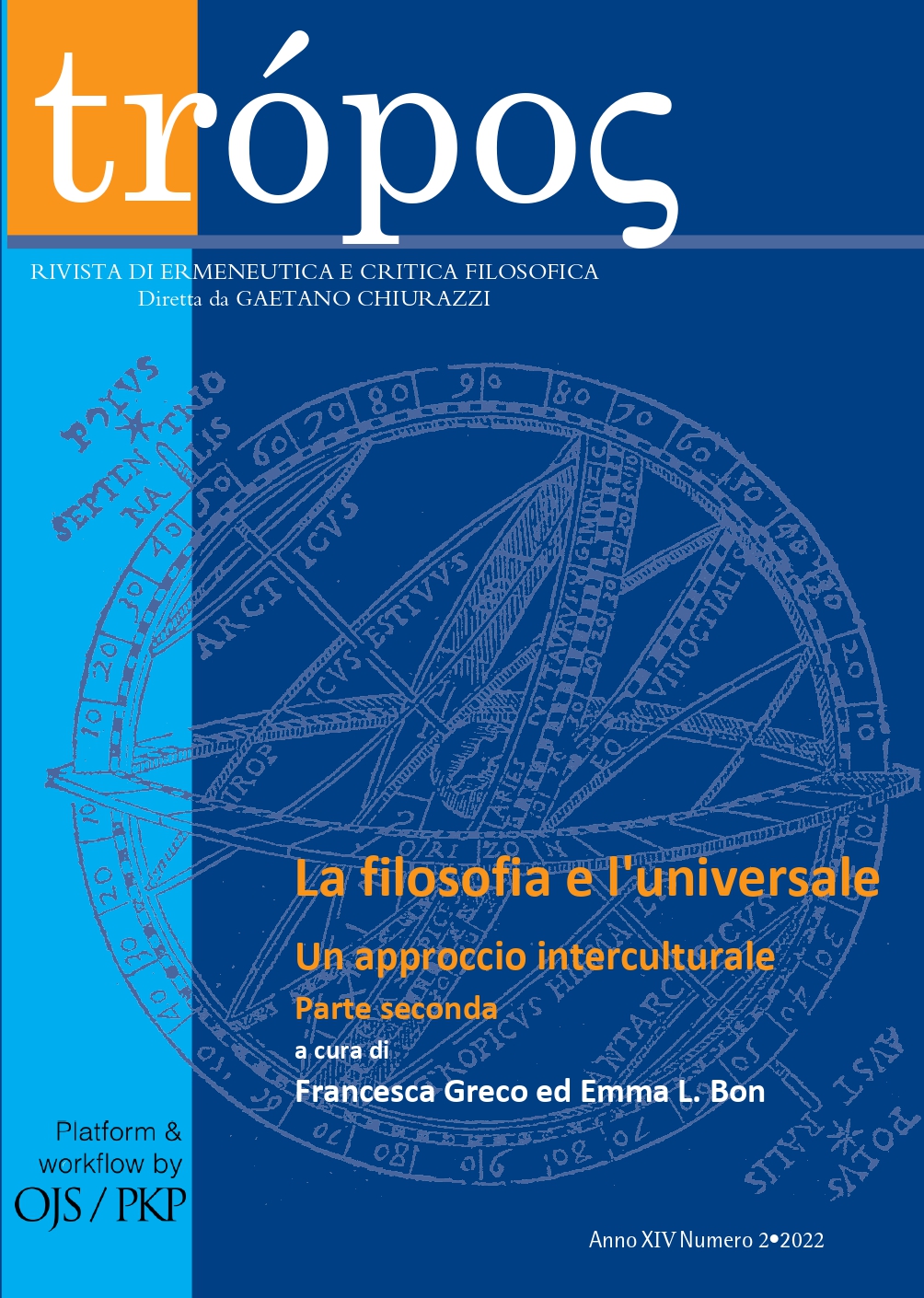Towards a Universal Eudaimonism?
Aristippus and Zhuangzi on Play, Dependence and the Good Life
DOI:
https://doi.org/10.13135/2036-542X/8885Parole chiave:
Play, Aristippus, Zhuangzi, you 遊, eudaimonia, dependenceAbstract
The article explores similarities between the philosophies of Zhuangzi and Aristippus, focusing in particular on play and eudaimonism. The main thesis is that both authors encourage the cultivation of a playful mindset, defined in the paper as the “ludic self”, which operates as a strategy for leading a flourishing life. By shaping a fluid, unstructured identity, the ludic self promotes negative subtraction from the structuring power of social nexus and proactive adaptation to shifting circumstances. Furthermore, some aspects of these philosophies present an inter-disciplinary convergence with scientific findings from the psycho-biology of play, concerned with the mobilization of cathected energies and the prevention, or resolution, of addictive states. These promising connections with the fields of psychology and biology also represent an original contribution in respect to the existing debates within Zhuangzi studies, and scholarship on the Cyrenaics. From a methodological point of view, the article pursues what Rorty defines as a “rational reconstruction”, which involves a re-interpretation of past philosophies in light of present debates, ideas and vocabularies with the aim of engaging a trans-cultural, trans-historical dialogue. The value of this operation relies upon the universality of human experience, which always allows re-interpretation and re-actualization of past philosophies as a dialogical exercise of questioning otherness within a hermeneutic framework.


